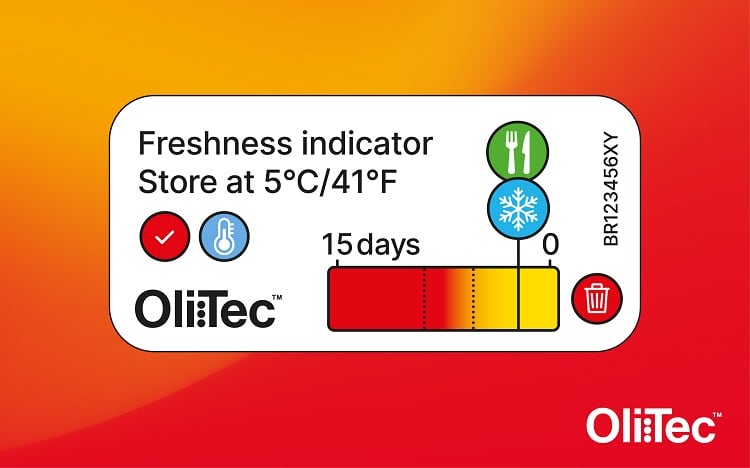Nearly one-third of all food produced for human consumption is wasted or lost each year.
In developed countries, consumers throw away 286m tonnes of cereal product per annum. According to the FAO, in Europe alone 29m tonnes of dairy products are lost or wasted throughout the year.
In total, food loss and waste amounts of 1.5m tonnes annually, which is considered enough to feed two billion people or the entire population of the US ten times over.
Food waste is bad news for the environment. Globally, it is responsible for 6% of all greenhouse gas (GHG) emissions and is the largest contributor after China and the US.
“Food waste for each food commodity is excessive and is impacting on our planet’s resources,” explained cross-Atlantic start-up Oli-Tec. “We need to learn to use the resources we have more efficiently for the future generations.”
Oli-Tec, which has registered operations in the both the UK and US, has developed technology it claims will help industry and consumers better manage waste.
‘Best before’ and ‘use by’ confuse consumers
In developed countries, the majority of food is wasted in the home. This can occur when food is not stored at the correct temperatures, explained the start-up, but a big proportion is linked to consumers not using food labels effectively or not knowing when food is still good to eat.
The European Commission estimates that 10% of food waste relates to date labelling. In the US, it is estimated to be as much as 20%.
“’Sell by’, ‘best before’, and ‘use by’ confuse consumers and don’t reflect storage conditions,” the start-up stressed.
Indeed, a 2021 study published in the Journal of Nutrition Education and Behavior suggested that only 64% of US adults could correctly explain what the ‘best if used by’ label meant. Just 44.8% were able to describe the meaning of ‘use by’.
Oli-Tec is on a mission to change consumer behaviour. By ‘filling a gap’ in the market for time and temperature indicator labelling, the start-up hopes consumers will make ‘smarter choices’ when it comes to product life.
“We developed the Oli-Tec label technology with converters, retailers and consumers in mind,” explained CEO Nik Richardson.
“We wanted to make it a technology that is easy to integrate into the complex processes in the supply chain and in-store, so each label could play some part in reducing waste.
“We have also strived to develop a simple visual indicator that will help consumers to see when food is going off. They can then decide whether to use it, freeze it or cook it.”
How does the labelling tech work?
Oli-Tec’s smart label technology is both temperature and time sensitive. In essence, the label is designed to ‘mirror the decay cycle’ of the product being labelled.

The recyclable, 100% polypropylene label can be applied to any product with a shelf life of between five and 15 days.
Its time window changes from yellow to red as the product quality diminishes over time. Being time sensitive, the diffusion line speeds up when the product is in high temperatures and slows down in low temperatures. The thermometer icon shows up as blue, but only when the product is stored at the right temperature.
For consumers, the wins are obvious: the label provides a life cycle monitor of fresh, pre-packaged or frozen foods, so that they know when perishable foods are ‘at their best’.
However, Oli-Tec believes the labelling technology will benefit other players in the food supply chain. The technology will help distributors spot supply chain issues early, the start-up explained, and for retailers, the label makes for ‘more efficient’ store management and better control over products with shorter shelf-lives – which means less discounting.
Trials underway
Having completed initial validation of the labelling technology, Oli-Tec is now looking to trial its efficacy across the retail, manufacturing, pharma, supply chain, and logistics industries.
Early indicators suggest, however, that smart labels can make a significant difference: a study conducted in Denmark suggested the use of smart labels reduced in-store food waste by 20%.
Oli-Tec believes that similar reductions could be achieved in consumers’ homes if they had smart labels with a ‘call to action’ visual indicator instead of having to rely on labels carrying ‘use by’ or ‘best before’ dates.




